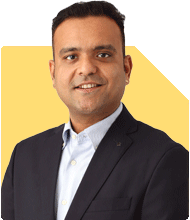Rohit Gupta | Answer |Ask -Follow
Edtech/Online Education Expert - Answered on Feb 15, 2024
Rohit is a first-generation entrepreneur who currently leads the company’s marketing and operations department.
A TEDx speaker, he was honoured with the ET Leadership Excellence Award 2022 for his effort in helping shape the lives of over 90,000 students through his platform.
Rohit is passionate about the potential of online education and is on a mission to democratise access to quality education and career opportunities.
He completed his schooling from Scholars Home in Dehradun and holds a bachelor’s degree in commerce from Deshbandhu College, Delhi.
... more

Being a content writer, I am terrible at copywriting. Is this acceptable?
You may like to see similar questions and answers below
Krishna Kumar |398 Answers |Ask -Follow
Workplace Expert - Answered on Feb 01, 2024
Krishna Kumar |398 Answers |Ask -Follow
Workplace Expert - Answered on Feb 12, 2024
T S Khurana |558 Answers |Ask -Follow
Tax Expert - Answered on Feb 28, 2026
T S Khurana |558 Answers |Ask -Follow
Tax Expert - Answered on Feb 28, 2026
T S Khurana |558 Answers |Ask -Follow
Tax Expert - Answered on Feb 28, 2026
Nayagam P P |10926 Answers |Ask -Follow
Career Counsellor - Answered on Feb 27, 2026
Ramalingam Kalirajan |11047 Answers |Ask -Follow
Mutual Funds, Financial Planning Expert - Answered on Feb 27, 2026
Mayank Chandel |2628 Answers |Ask -Follow
IIT-JEE, NEET-UG, SAT, CLAT, CA, CS Exam Expert - Answered on Feb 27, 2026
Pankaj Vyavahare |15 Answers |Ask -Follow
Career Counsellor, Life Coach - Answered on Feb 26, 2026
Pankaj Vyavahare |15 Answers |Ask -Follow
Career Counsellor, Life Coach - Answered on Feb 26, 2026
Dr Dipankar Dutta |1856 Answers |Ask -Follow
Tech Careers and Skill Development Expert - Answered on Feb 26, 2026
Ramalingam Kalirajan |11047 Answers |Ask -Follow
Mutual Funds, Financial Planning Expert - Answered on Feb 26, 2026




























